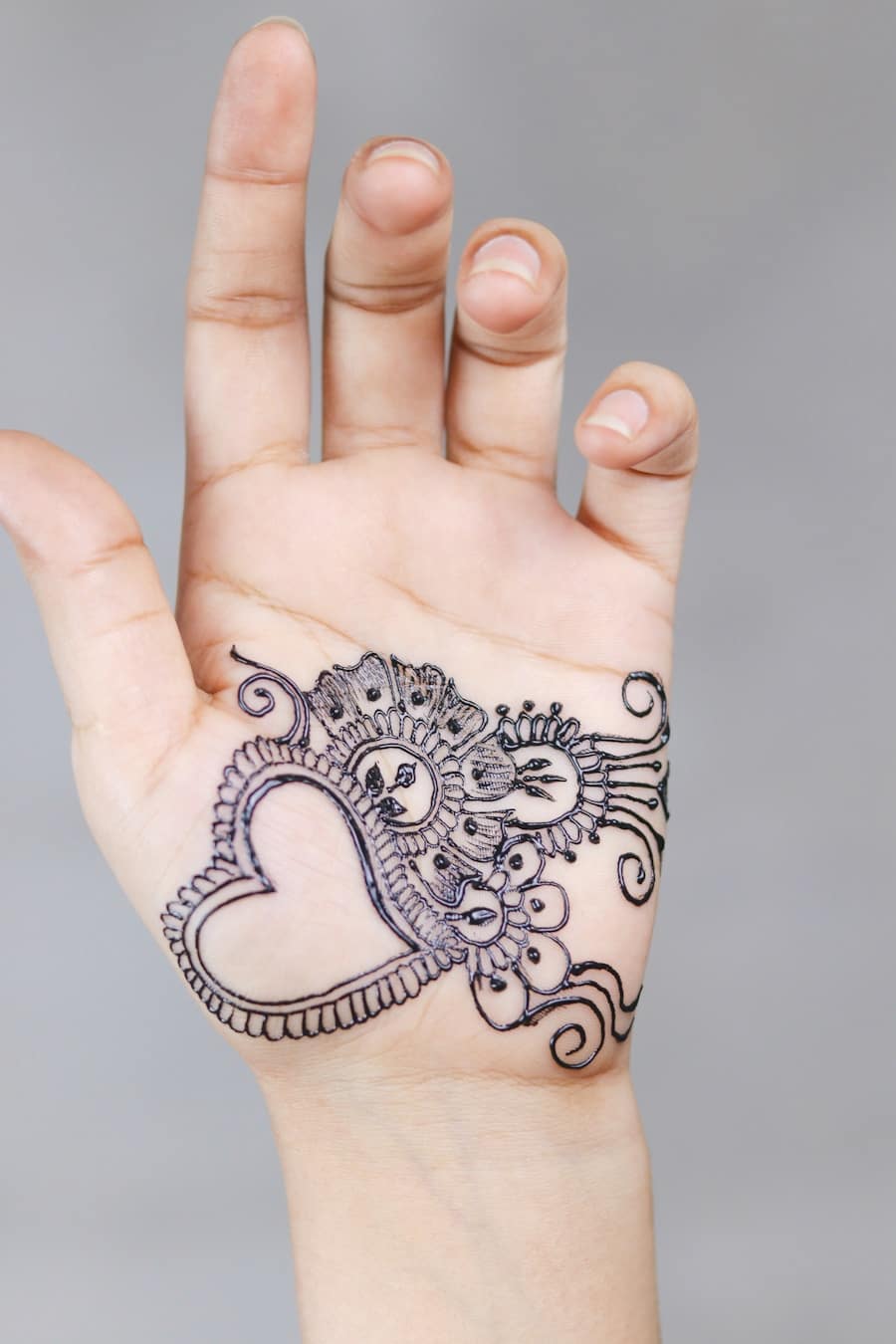The advent of technology has permeated various aspects of human life, and the intersection of technology and biology has given rise to innovative concepts such as smart tattoos. These tattoos are not merely artistic expressions but sophisticated devices that can monitor physiological parameters and collect biometric data. Smart tattoos are typically made from biocompatible materials and are embedded with sensors that can track a range of health metrics, including heart rate, hydration levels, and even glucose levels.
This fusion of art and technology represents a significant leap forward in wearable health monitoring, offering a seamless integration into daily life without the bulkiness of traditional devices. The concept of smart tattoos is rooted in the desire for continuous health monitoring without the need for intrusive devices. Unlike conventional wearables, which can be cumbersome and require regular charging, smart tattoos are designed to be lightweight and unobtrusive.
They can be applied like traditional tattoos, adhering to the skin and providing real-time data collection. This innovation not only enhances the user experience but also opens up new avenues for medical research and personal health management. As society increasingly embraces the Internet of Things (IoT), smart tattoos stand at the forefront of a new era in health technology, promising to revolutionize how individuals interact with their own bodies and health data.
Key Takeaways
- Smart tattoos are a new and innovative technology that can collect biometric data in a non-invasive way.
- Biometric data collection is important for various applications such as healthcare, security, and personal identification.
- Smart tattoos work by using biosensors to collect and transmit biometric data to external devices for analysis.
- Smart tattoos have applications in healthcare monitoring, fitness tracking, and security authentication.
- The advantages of smart tattoos include non-invasiveness and continuous data collection, but limitations include potential privacy concerns and ethical considerations.
Biometric Data Collection and its Importance
The Role of Biometric Data Collection in Healthcare
The importance of biometric data collection cannot be overstated; it plays a crucial role in healthcare, security, and personal fitness. In healthcare, for instance, continuous monitoring of biometric data can lead to early detection of potential health issues, allowing for timely intervention and improved patient outcomes.
Personalized Medicine and Biometric Data Collection
Moreover, biometric data collection is increasingly being utilized in personalized medicine, where treatments can be tailored to an individual’s specific physiological responses. This shift towards personalized healthcare is driven by the understanding that each person’s body reacts differently to medications and therapies.
Real-Time Monitoring and Chronic Disease Management
By collecting biometric data through smart tattoos, healthcare providers can gain insights into a patient’s unique health profile, enabling them to make informed decisions about treatment plans. The ability to monitor changes in real-time also enhances the effectiveness of chronic disease management, as patients can receive immediate feedback on their health status.
How Smart Tattoos Work

Smart tattoos operate through a combination of advanced materials and embedded technology. Typically composed of flexible electronic components, these tattoos utilize conductive inks that can sense various physiological signals. For instance, they may contain sensors that detect changes in skin temperature or moisture levels, which can indicate hydration status or metabolic changes.
The data collected by these sensors is transmitted wirelessly to a connected device, such as a smartphone or computer, where it can be analyzed and interpreted. The technology behind smart tattoos often incorporates microcontrollers and wireless communication protocols like Bluetooth or NFC (Near Field Communication). This allows for seamless data transfer between the tattoo and external devices.
This self-sufficiency eliminates the need for batteries, making them more sustainable and user-friendly. The integration of artificial intelligence (AI) algorithms further enhances their functionality by enabling predictive analytics based on the collected biometric data.
Applications of Smart Tattoos in Biometric Data Collection
The applications of smart tattoos in biometric data collection are vast and varied, spanning multiple domains from healthcare to sports performance. In the medical field, smart tattoos can be employed for continuous monitoring of chronic conditions such as diabetes or cardiovascular diseases. For example, a smart tattoo designed to monitor glucose levels could provide real-time feedback to diabetic patients, allowing them to manage their condition more effectively without the need for frequent finger pricks or invasive blood tests.
In sports and fitness, athletes are increasingly turning to smart tattoos for performance optimization. These tattoos can track metrics such as heart rate variability, muscle fatigue, and hydration levels during training sessions. By analyzing this data, coaches and athletes can make informed decisions about training regimens and recovery strategies.
Furthermore, smart tattoos can help prevent injuries by alerting athletes to signs of overexertion or dehydration before they become serious issues. This proactive approach to health monitoring not only enhances athletic performance but also promotes long-term well-being.
Advantages and Limitations of Smart Tattoos
The advantages of smart tattoos are numerous and compelling. One of the most significant benefits is their unobtrusive nature; unlike traditional wearables that may be bulky or uncomfortable, smart tattoos blend seamlessly into the skin. This aesthetic appeal encourages consistent use among individuals who may otherwise shy away from conventional health monitoring devices.
Additionally, the continuous nature of data collection provided by smart tattoos allows for a more comprehensive understanding of an individual’s health over time. However, there are limitations associated with smart tattoos that must be considered. One primary concern is the accuracy and reliability of the data collected.
While advancements in sensor technology have improved the precision of measurements, factors such as skin condition or environmental influences can affect readings. Furthermore, the longevity of smart tattoos is another consideration; while some designs may last for weeks or months, others may degrade more quickly due to exposure to sweat or environmental elements. These limitations necessitate ongoing research and development to enhance the durability and accuracy of smart tattoo technology.
Ethical and Privacy Considerations

The Ethical Implications of Smart Tattoos
Smart tattoos, like any technology that collects personal information, raise important ethical and privacy considerations. The continuous monitoring of biometric data raises questions about who has access to this information.
### Consent and Ownership
Is the data collected solely for personal use, or can it be shared with healthcare providers or third-party companies? These questions highlight the need for clear regulations governing the use of biometric data to protect individuals’ privacy rights.
### Security Risks
Moreover, there is a risk that biometric data could be misused or exploited if it falls into the wrong hands. For instance, hackers could potentially access sensitive health information through vulnerabilities in connected devices. This underscores the Importance of Robust Security Measures to safeguard personal data collected by smart tattoos. Additionally, ethical considerations must extend to how this technology is marketed and used; ensuring that individuals are fully informed about what they are consenting to when using smart tattoos is crucial for maintaining trust in this emerging field.
Future Developments in Smart Tattoos for Biometric Data Collection
The future of smart tattoos holds immense potential for further advancements in biometric data collection. As research continues to evolve, we may see the development of more sophisticated sensors capable of monitoring an even wider array of physiological parameters. For instance, future iterations could include sensors that detect hormonal changes or metabolic markers in real-time, providing deeper insights into an individual’s health status.
Additionally, advancements in materials science may lead to the creation of more durable and flexible substrates for smart tattoos, enhancing their longevity and comfort on the skin. Innovations in wireless communication could also improve data transmission speeds and reduce energy consumption, making these devices even more efficient. Furthermore, as artificial intelligence continues to advance, we may see smarter algorithms capable of providing predictive analytics based on historical biometric data trends, allowing users to take proactive steps toward maintaining their health.
The Impact of Smart Tattoos on Biometric Data Collection
Smart tattoos represent a groundbreaking fusion of art and technology that has the potential to transform how we collect and interpret biometric data. By offering a discreet and continuous method for monitoring health metrics, they pave the way for personalized medicine and proactive health management strategies. As advancements continue in sensor technology, materials science, and data analytics, smart tattoos will likely become an integral part of our approach to health monitoring.
The implications extend beyond individual health management; they could reshape healthcare systems by enabling more efficient patient monitoring and personalized treatment plans. However, as we embrace this innovative technology, it is essential to navigate the ethical landscape carefully to ensure that privacy concerns are addressed and that individuals retain control over their biometric data. The journey toward widespread adoption of smart tattoos will undoubtedly be accompanied by challenges; however, their potential impact on biometric data collection is profound and far-reaching.
In a recent article discussing the advancements in wearable technology, the comparison between the Apple Watch and Samsung Galaxy Watch is explored in depth. The article highlights the importance of choosing the right device for collecting biometric data, a topic also covered in the piece on the role of smart tattoos in biometric data collection. To learn more about the latest trends in wearable technology, check out the article here.
FAQs
What are smart tattoos?
Smart tattoos are electronic devices that are designed to be implanted onto the skin and can collect and transmit biometric data. They are typically thin, flexible, and can be easily concealed on the body.
How do smart tattoos collect biometric data?
Smart tattoos use various sensors to collect biometric data such as heart rate, body temperature, and even blood glucose levels. These sensors are embedded within the tattoo and can continuously monitor the body’s physiological parameters.
What is the role of smart tattoos in biometric data collection?
Smart tattoos play a crucial role in biometric data collection as they provide a non-invasive and continuous method of monitoring an individual’s health and wellness. They can be used for medical purposes, fitness tracking, and even for security and identification purposes.
Are smart tattoos safe for use on the skin?
Smart tattoos are designed to be safe for use on the skin. They are typically made from biocompatible materials and are engineered to minimize any potential risks or adverse reactions when implanted onto the skin.
How are smart tattoos powered?
Smart tattoos can be powered using various methods such as wireless charging, energy harvesting from the body’s own movements or heat, or through the use of small, long-lasting batteries. The choice of power source depends on the specific design and application of the smart tattoo.

